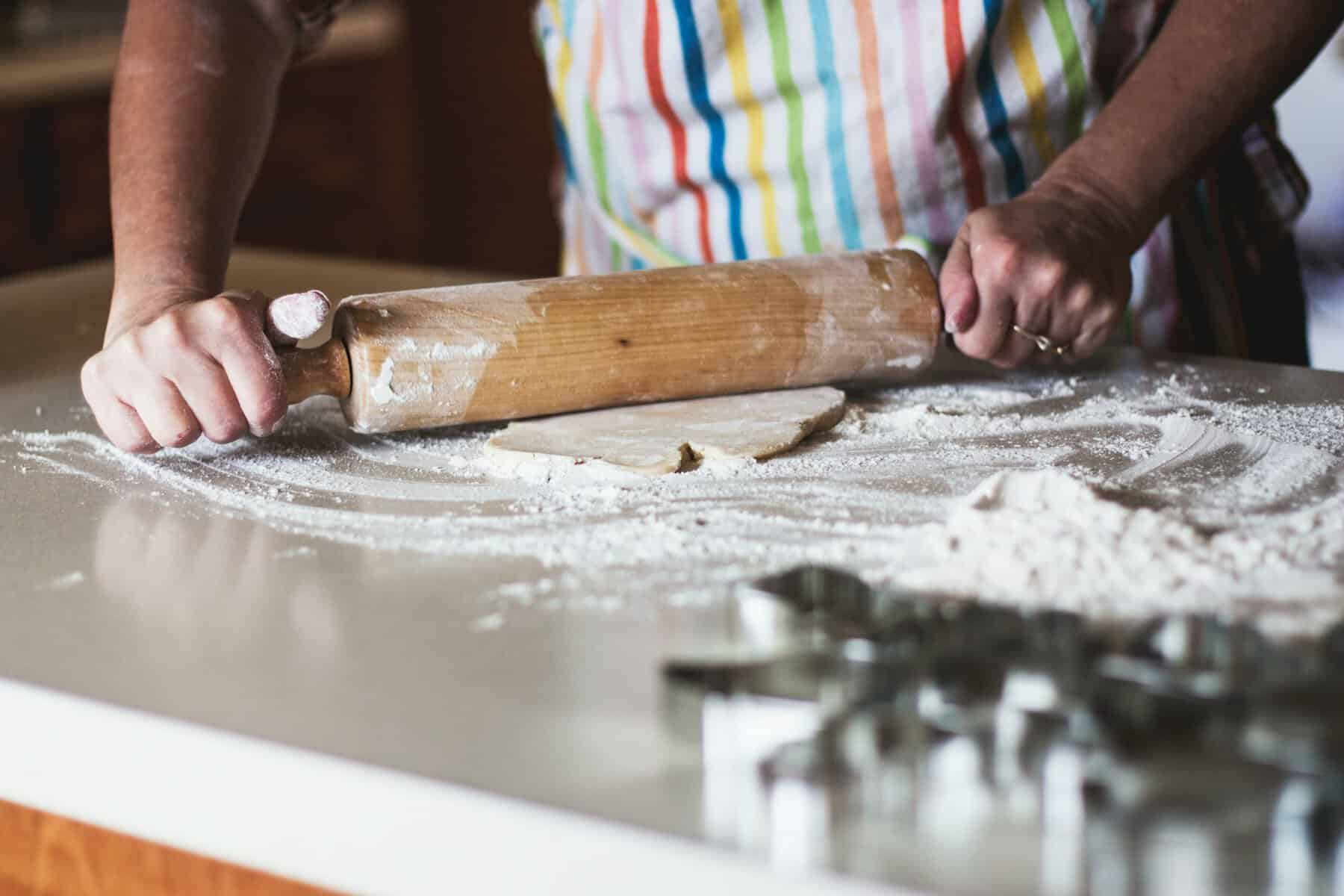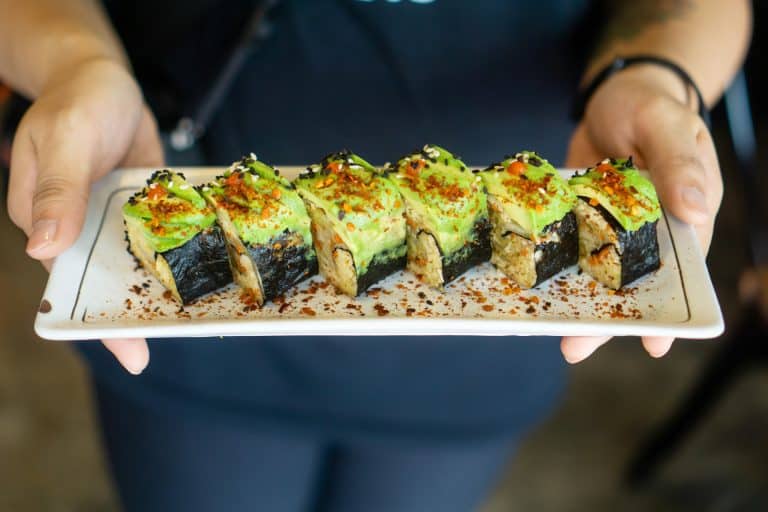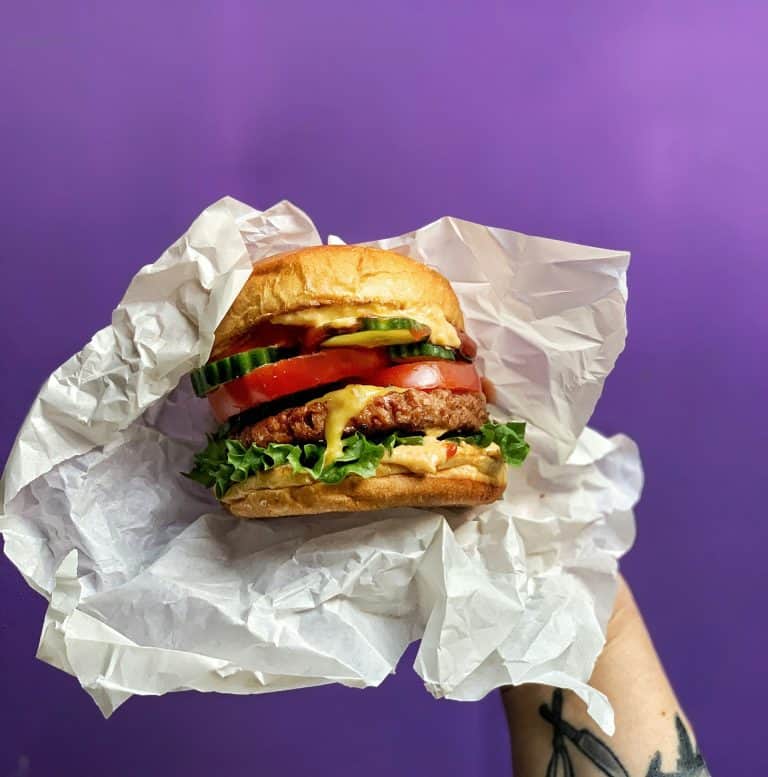Vegan Baking 101: Bake With Compassion!
Vegan baking is a creative and fulfilling way to make delicious baked goods without using any animal products. This craft has grown in popularity as more people look for plant-based alternatives that align with vegan principles or dietary preferences.
Baking without traditional ingredients such as eggs, butter, and milk might seem daunting at first, but it opens up the door to a wealth of new and diverse ingredients. It challenges bakers to think differently about the science and artistry behind each sweet and savoury creation.
Experimenting with plant-based ingredients can lead to unexpected and delightful results. The assorted choices like almond milk and coconut cream replace dairy, and ground flaxseed or mashed banana act as binders instead of eggs.
These substitutes not only emulate the textures and flavours bakers aim for but can also add new flavour dimensions to classic recipes.
From the fluffy rise of a chocolate cake to the crisp edges of a perfect biscuit, mastering the nuances of vegan baking is both possible and infinitely rewarding. Innovations in this field are continually expanding, with a growing number of specialty products and techniques available to home bakers and professional chefs alike.
Key Takeaways
- Vegan baking utilises plant-based ingredients to create a wide array of baked goods.
- Knowledge of alternative ingredients and techniques is essential for success.
- Vegan baking is an evolving craft with a growing community and resources.
The Basics of Vegan Baking
Vegan baking replaces traditional animal-based ingredients with plant-based alternatives to create a diversified concoction of delightful treats. The two crucial aspects to master in vegan baking are understanding the roles of different ingredients and mastering key techniques.
Understanding Vegan Baking Ingredients
Vegan baking primarily involves using substitutes that replicate the functions of traditional baking ingredients like eggs, butter, and milk.
Egg substitutes are vital for binding and raising. For example, chia seeds mixed with water work very well.
Combining 1 tablespoon of chia seeds with 3 tablespoons of water can replace one egg. On the other hand, cornflour mixed with water serves as an excellent binder while also contributing to the softness and moisture of baked goods.
As a butter substitute, vegan bakers often turn to plant-based spreads or oils. These not only impart a rich flavour but also provide the structure needed in pastries and cakes.
Vegan butter can be precisely measured and used similarly to dairy butter, ensuring a seamless transition in recipes.
Essential Vegan Baking Techniques
Dairy-free baking requires some easy adjustments in technique.
One key procedure is the sifting of dry ingredients to incorporate air and add lightness to the bake. This is especially important when using some vegan substitutes, which can otherwise lead to denser final products.
In terms of refrigeration, certain pastries like vegan shortbread benefit from chilling. It allows the plant-based butter to harden, resulting in a less sticky and more manageable dough.
This highlights the importance of temperature control, especially when using plant-based ingredients that might behave differently from their traditional counterparts.
Vegan Baking Ingredients
When embarking on vegan baking, one must carefully select alternative ingredients to traditional animal-based products. These alternatives should complement the dish both in flavour and function.
Vegan Fats and Oils
Butter is traditionally a staple in baking, but for vegans, plant-based alternatives such as margarine or coconut oil can be used.
Coconut oil provides a rich, creamy texture, much like butter, and is ideal for creating flaky pastries or rich frostings. Meanwhile, olive oil or nooch, with its distinct taste, works wonderfully in savoury bread and muffins.
Plant-Based Milks and Creams
Dairy milk can be replaced with a variety of plant-based options.
Almond milk and oat milk are popular choices due to their neutral flavour profiles, making them versatile for varied recipes.
On the other hand, coconut milk, with its thicker consistency, is excellent for adding richness to vegan desserts.
Egg Replacements
Chia seeds and flaxseeds are remarkable egg substitutes when mixed with water, forming what’s known as a chia egg or a flax egg.
These concoctions gel and can emulate an egg’s binding properties in baking. Additionally, aquafaba, the brine from chickpeas, can mimic egg whites due to its ability to whip and hold air.
Natural Sweeteners and Sugar Alternatives
Rather than refined sugars, vegan bakers often utilise maple syrup or agave nectar.
Maple syrup provides a complex flavour with a hint of caramel, suitable for sweet pastries and cakes. Meanwhile, beet sugar is another excellent vegan-friendly option for directly replacing granulated sugar.
Raising Agents
Raising agents are critical in bread and cake making. Traditional options include baking powder and baking soda, which remain vegan-friendly.
When activated, either by moisture or heat, they produce carbon dioxide, causing dough and batters to rise, resulting in light and airy baked goods.
Recipes and Techniques
In this section, we explore a variety of vegan baking recipes and techniques, tailored to create sumptuous cakes, cookies, breads, and pastries without using animal products.
Each recipe focuses on the substitution of ingredients like eggs and dairy with plant-based alternatives to achieve the desired taste and texture.
Cakes and Cupcakes
Vegan cakes and cupcakes can be just as moist and flavourful as their non-vegan counterparts.
A popular choice is the vegan chocolate cake, which often uses non-dairy milk and apple cider vinegar to create a rich, tangy batter.
For lighter delights, vegan cupcakes might incorporate coconut oil and almond milk.
For example, you can try making an enticing vegan chocolate cake or a batch of delightful vegan cupcakes, ensuring you follow the specific plant-based ingredient replacements for optimal results.
Cookies and Biscuits
Cookies and biscuits make for a delicious treat in your vegan baking repertoire.
Chocolate chip cookies and peanut butter cookies are perennial favourites, and their vegan versions often include flaxseed meal or mashed banana as binders.
Don’t forget, vegan chocolate chip cookies can be found that use dairy-free chocolate and vegan butters.
Techniques include the creaming of vegan butter and sugar to achieve a light texture, as illustrated by these vegan baking tricks.
Breads and Rolls
Vegan breads range from the staple banana bread to savoury zucchini bread and delectable cinnamon rolls.
Quick breads rely on raising agents like baking powder, while yeasted breads and rolls might utilise non-dairy milk to enrich the dough.
Techniques important for these loafy delights involve the proper kneading, resting and rising times to develop the right crumb and crust.
Mastering vegan bread baking is a rewarding process, yielding results like hearty vegan banana bread.
Pastries and Morning Goods
Vegan pastry recipes allow one to produce flaky croissants, tender scones, and more.
Securing a light and airy texture often requires cold, solid fats, such as refrigerated coconut oil or vegan shortening.
Laminating dough is key for items such as croissants, creating delicate layers. Scones need a gentle touch to avoid overworking the dough.
The right technique and recipe, like vegan scones, are crucial for a successful pastry.
Vegan Alternatives and Substitutions
In vegan baking, the right alternatives can flawlessly replace traditional ingredients such as eggs, butter, and dairy without compromising on taste or texture. Knowledge of these substitutes is essential for successful vegan recipes.
Dairy and Egg Substitutes
Dairy products and eggs are commonly used in baking for their moisture, raising, and binding properties. However, vegan bakers have a variety of plant-based options at their disposal:
- Butter Substitute: Vegan butter and margarine are readily available here at Vegan Supermarket UK and can be used in a 1:1 ratio for traditional butter. This ensures the same rich, creamy texture in cakes and cookies.
- Milk Substitute: Dairy-free milks such as almond, soy, and oat milks serve as excellent alternatives for cow’s milk. Make sure to use unsweetened varieties to control the sugar levels in recipes.
- Egg Substitute:
- Flax Egg: Mixing 1 tablespoon of ground flaxseed with 3 tablespoons of water creates a “flax egg,” which can replace one egg.
- Chia Egg: Similarly, a “chia egg” is made with 1 tablespoon of chia seeds and 3 tablespoons of water.
- Fruit Purees: A quarter cup of mashed banana or apple sauce is another egg alternative, providing moisture and acting as a binder.
Flavour Enhancements
The essence of flavour in vegan baking is to complement the recipe without overshadowing the primary ingredients. Certain additions help to enhance the taste profile of the final product:
- Fruit Zests: Lemon and orange zest add a refreshing burst of flavour to baked goods, pairing exceptionally well with desserts such as cakes and biscuits.
- Nut Butters: Options like almond and peanut butter can enhance the taste while also adding a protein boost.
- Coconut: Its flesh, oil, and milk, contribute a subtle, tropical essence as well as richness to vegan baking.
- Vanilla Extract: A staple in the bakers’ pantry, vanilla extract imparts a warm, aromatic flavour, crucial for many dishes.
Advanced Vegan Baking
Mastering advanced vegan baking requires an understanding of how to replace traditional ingredients with plant-based alternatives without sacrificing structure or flavour.
Precision in the use of nuts and seeds, and maintaining the right balance of moisture and binding elements, is crucial for achieving the desired consistency and taste.
Creating Structured Baked Goods
In vegan baking, creating structure often involves a careful selection of nuts and seeds.
Ground pecans or walnuts can add body to vegan brownies, imparting a rich, dense quality.
To bind ingredients without eggs, you could use flax or chia seeds.
A typical egg replacement is a mixture of 1 tablespoon of ground flax seeds with 3 tablespoons of water, left to hydrate for a few minutes.
This not only binds ingredients together but also helps to retain moisture, creating a light and moist bake.
Additionally, coconut oil can be used as a butter alternative, contributing to a tender crumb in cakes and pastries.
Coconut cream, used judiciously, provides the richness often sought after in desserts such as vegan puddings or mousse.
Vegan Desserts and Confections
The creation of vegan desserts and confections often involves innovative methods and ingredients to mimic the textures and flavours of their non-vegan counterparts.
For instance, vegan meringues can be crafted using aquafaba—the liquid from a can of chickpeas—which whips up similarly to egg whites.
In terms of confections, tahini or other seed butters can impart a unique flavour profile while contributing to the creamy consistency needed for indulgent fillings or frostings.
For chocolate desserts, such as vegan brownies, selecting high-quality dairy-free chocolate is paramount to ensure the end product has the glossy finish and snap typically associated with traditional chocolate treats.
Specialty Vegan Baking
Vegan baking encompasses a wide array of specialty areas, from incorporating gluten-free options to crafting raw desserts and celebrating with festive vegan treats.
Gluten-Free Vegan Baking
Vegan bakers often face the challenge of replacing both gluten-containing ingredients and animal products.
Gluten-free vegan baking necessitates alternatives like oats and corn in place of traditional wheat flour.
For instance, vegan chocolate chip cookies can be made with a blend of gluten-free flours and oats, enhancing texture and flavour.
- Vegan lemon drizzle cake can be crafted utilising a mix of gluten-free flours such as rice and almond flour, bound together with ground flaxseed as a substitute for eggs.
- Vegan carrot cake benefits from the natural sweetness and moisture of carrots, paired with gluten-free flour and coconut sugar for a delightful confection.
Raw Vegan Baking
Raw vegan baking focuses on creating baked goods without cooking, often resulting in nutrient-rich treats.
Ingredients like dates and nuts are staples, forming bases and fillings for a variety of desserts.
- Raw vegan bars often feature a combination of ground nuts, berries, and dates, assembled without any heat to preserve their raw state.
- Chocolate chips can be introduced into raw preparations such as banana bread-inspired bars, utilizing ripe bananas and oats as foundational components.
Festive Vegan Specialties
When it comes to festive vegan specialties, creativity shines.
Vegan Christmas cake epitomises this, laden with spices, dried fruits, and a generous helping of pumpkin for moisture.
- Vegan shortbread for the holiday season can be made with quality vegan butter and dusted with coconut sugar.
- Doughnuts, often a crowd favourite, can be crafted with spiced apple or pumpkin purees, bringing a festive twist to the table.
Frequently Asked Questions
This section addresses some of the most common enquiries people have when starting with vegan baking, targeting effective alternatives and techniques.
How can I substitute eggs in vegan baking?
One can utilise flaxseeds or chia seeds as a replacement for eggs, making a ‘flax egg’ or ‘chia egg’ by combining them with water. These binders not only provide the necessary structure but also add nutritional value.
What are the best plant-based alternatives for dairy in cakes and biscuits?
For dairy substitutions in cakes and biscuits, consider using almond, soy, or oat milk.
Utilising these plant-based milks can mimic the moisture dairy provides, while coconut oil or vegan butter can replace butter effectively.
Which natural sweeteners work well in vegan desserts?
Dates, maple syrup, and agave nectar are excellent natural sweeteners for vegan desserts. They provide a varying range of sweetness levels and can contribute additional flavours to the desserts.
What are some essential vegan baking staples for beginners?
Beginners should stock up on plant-based milk, flaxseeds, coconut oil, and a variety of natural sweeteners. These staples create a solid foundation for a myriad of vegan baking recipes.
How can texture and flavour be optimised in eggless baked goods?
The texture and flavour in eggless baked goods can be enhanced by incorporating ingredients such as bananas or apple sauce, which add moisture.
Vanilla extract or citrus zest can also boost flavour profiles without altering the structure.
What are some common pitfalls to avoid in vegan baking?
Avoid overmixing the batter, which can lead to baked goods becoming tough or dense.
It’s also crucial to measure ingredients accurately and be mindful of baking times. Vegan ingredients often react differently than their non-vegan counterparts.







